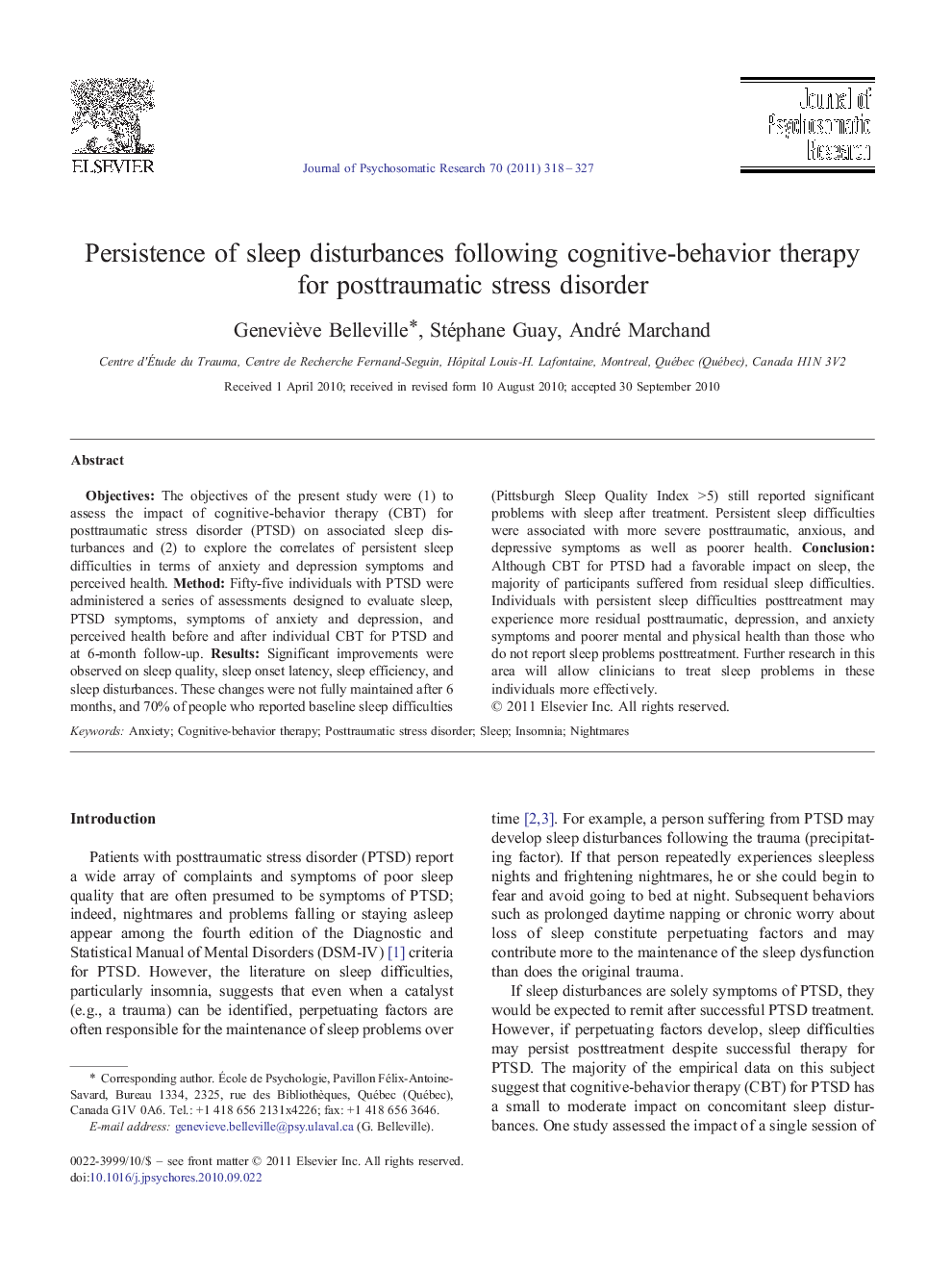| Article ID | Journal | Published Year | Pages | File Type |
|---|---|---|---|---|
| 949805 | Journal of Psychosomatic Research | 2011 | 10 Pages |
ObjectivesThe objectives of the present study were (1) to assess the impact of cognitive-behavior therapy (CBT) for posttraumatic stress disorder (PTSD) on associated sleep disturbances and (2) to explore the correlates of persistent sleep difficulties in terms of anxiety and depression symptoms and perceived health.MethodFifty-five individuals with PTSD were administered a series of assessments designed to evaluate sleep, PTSD symptoms, symptoms of anxiety and depression, and perceived health before and after individual CBT for PTSD and at 6-month follow-up.ResultsSignificant improvements were observed on sleep quality, sleep onset latency, sleep efficiency, and sleep disturbances. These changes were not fully maintained after 6 months, and 70% of people who reported baseline sleep difficulties (Pittsburgh Sleep Quality Index >5) still reported significant problems with sleep after treatment. Persistent sleep difficulties were associated with more severe posttraumatic, anxious, and depressive symptoms as well as poorer health.ConclusionAlthough CBT for PTSD had a favorable impact on sleep, the majority of participants suffered from residual sleep difficulties. Individuals with persistent sleep difficulties posttreatment may experience more residual posttraumatic, depression, and anxiety symptoms and poorer mental and physical health than those who do not report sleep problems posttreatment. Further research in this area will allow clinicians to treat sleep problems in these individuals more effectively.
